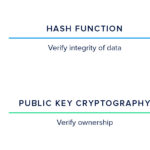As we stand on the precipice of a new technological era, quantum computing emerges not merely as a noteworthy advancement but as a potential paradigm shift in the realm of encryption. The evolution of computers has been relentless, yet the thrust of quantum mechanics promises capabilities that transcend classical limitations. This exploration evaluates the profound implications that quantum computers could have on encryption—an essential component of modern digital security.
At the core of this discussion lies an understanding of the fundamental underpinnings of encryption. Traditional cryptographic methods, such as RSA and AES, depend on the computational difficulty of certain mathematical problems. RSA, for instance, relies on the challenge of factoring large integers, a task that becomes increasingly intractable as the key size increases. However, this security constructs will face unprecedented challenges in a world where quantum computers harness the peculiarities of quantum bits or qubits.
Quantum computers operate on principles that are radically different from those of classical computers. In a classical setting, bits represent either a 0 or a 1. Conversely, qubits utilize the concept of superposition, wherein they can represent both 0 and 1 simultaneously. This characteristic enables quantum computers to process vast amounts of information concurrently, effectively performing calculations at speeds unattainable by their classical predecessors. Such capabilities inevitably have profound repercussions for encryption protocols, which rely on complexity for security.
The most formidable threat to traditional encryption from quantum computing is encapsulated in an algorithm: Shor’s algorithm. Proposed by mathematician Peter Shor, this algorithm demonstrates how quantum computers can factor large integers exponentially faster than classical algorithms. Consequently, if a sufficiently powerful quantum computer were to be developed, the RSA encryption that secures countless online transactions could be compromised almost instantaneously. The ramifications are staggering, potentially exposing sensitive data and eroding trust in digital systems.
Moreover, while Shor’s algorithm primarily targets public-key cryptography, Grover’s algorithm presents yet another avenue of concern. Grover’s algorithm provides a quadratic speedup for brute-force attacks on symmetric key cryptography. This means that, for instance, a symmetric key previously deemed sufficiently robust could become vulnerable with the advent of quantum computing. Current standards, such as AES-256, might need to be re-evaluated and reinforced with lengthier keys to counteract this threat.
As we navigate through the implications of quantum computing on encryption, it is essential to consider the concept of post-quantum cryptography. Researchers are actively developing encryption methods resistant to quantum algorithms, ensuring that security remains intact in a future that may be dominated by quantum computing. These algorithms leverage mathematical problems that are believed to be hard even for quantum machines, such as lattice-based cryptography and code-based cryptography.
The implementation of post-quantum cryptography involves a multifaceted approach. Firstly, it necessitates widespread collaboration among cryptographers, computer scientists, and institutions to ensure that new algorithms are rigorously tested and vetted. The National Institute of Standards and Technology (NIST) has been at the forefront of this endeavor, working meticulously towards standardizing post-quantum cryptographic protocols that can withstand quantum attacks.
In addition, transitioning to post-quantum encryption will undoubtedly be a complex process fraught with logistical challenges. Organizations must invest significantly in upgrading their systems, which can be daunting given the extensive reliance on current encryption protocols. This transformation also entails ongoing education and training for professionals tasked with implementing these new systems.
Another captivating aspect of quantum computing is quantum key distribution (QKD). This avant-garde technology leverages the principles of quantum mechanics to establish secure communication channels that remain impervious to eavesdropping. The fundamental tenant of QKD rests upon the notion that any attempt to observe the quantum state of a system alters it, thereby alerting the communicating parties to any interception attempts. QKD holds the tantalizing promise of achieving unbreakable encryption, potentially rendering even the most advanced attacks moot.
However, the quest for quantum-secure communication does not come without caveats. For one, the current technological infrastructure is not yet equipped to facilitate widespread deployment of QKD. The need for specialized hardware and the inherent distances limitations present formidable barriers to practical implementation. Nonetheless, the evolution of quantum technologies will likely pave the way for broader applicability of QKD, inciting renewed perspectives on how we examine digital security.
The future is undeniably intertwined with the advancements in quantum computing and its ramifications for encryption. As traditional methods face obsolescence under an avalanche of quantum capabilities, the embrace of innovative approaches, such as post-quantum cryptography and QKD, will define the landscape of digital security. The intrinsic challenge lies not only in evolving these technologies but also in ensuring timely adoption and adaptation across industries that depend on robust encryption practices.
Ultimately, the potential of quantum computing to upend the status quo in encryption compels us to reassess the dynamics of security in an increasingly interconnected digital realm. The transitional phase invites curiosity and challenges established norms. As we boldly venture into this arena, it becomes imperative to remain vigilant and proactive, not merely in addressing the threats posed by quantum capabilities but also in harnessing their promise to redefine and secure our digital future.








Leave a Comment